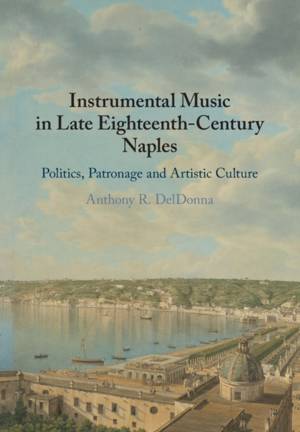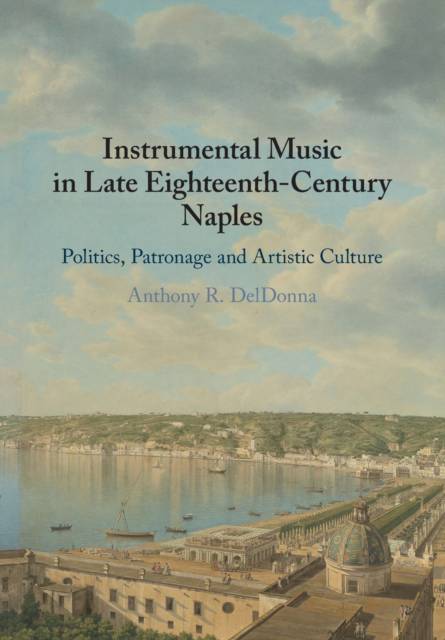
Je cadeautjes zeker op tijd in huis hebben voor de feestdagen? Kom langs in onze winkels en vind het perfecte geschenk!
- Afhalen na 1 uur in een winkel met voorraad
- Gratis thuislevering in België vanaf € 30
- Ruim aanbod met 7 miljoen producten
Je cadeautjes zeker op tijd in huis hebben voor de feestdagen? Kom langs in onze winkels en vind het perfecte geschenk!
- Afhalen na 1 uur in een winkel met voorraad
- Gratis thuislevering in België vanaf € 30
- Ruim aanbod met 7 miljoen producten
Zoeken
Instrumental Music in Late Eighteenth-Century Naples
Politics, Patronage and Artistic Culture
Anthony R Deldonna
Paperback | Engels
€ 50,45
+ 100 punten
Omschrijving
The music of early modern Naples and its renowned artistic traditions remain a fruitful area for scholars in eighteenth-century studies. Contemporary social, political, and artistic conditions had stimulated a significant growth of music, musicians and culture in the Kingdom of Naples from the beginning of the seventeenth century. Although eighteenth-century Neapolitan opera is well documented in scholarship, historians have paid much less attention to the simultaneous cultivation of instrumental genres. Yet the culture of instrumental music grew steadily and by its end became an exclusive area of focus for the royal court, a remarkable departure from past norms of patronage. By bridging this gap, Anthony R. DelDonna brings together diverse fields, including historical musicology, music theory, Neapolitan and European history. His book investigates the wide-ranging role of instrumental genres within late eighteenth-century Neapolitan culture and introduces readers to new material, including recently discovered instrumental works of Paisiello, Cimarosa and Pleyel.
Specificaties
Betrokkenen
- Auteur(s):
- Uitgeverij:
Inhoud
- Aantal bladzijden:
- 340
- Taal:
- Engels
Eigenschappen
- Productcode (EAN):
- 9781108725781
- Verschijningsdatum:
- 10/11/2022
- Uitvoering:
- Paperback
- Formaat:
- Trade paperback (VS)
- Afmetingen:
- 170 mm x 244 mm
- Gewicht:
- 539 g

Alleen bij Standaard Boekhandel
+ 100 punten op je klantenkaart van Standaard Boekhandel
Beoordelingen
We publiceren alleen reviews die voldoen aan de voorwaarden voor reviews. Bekijk onze voorwaarden voor reviews.









